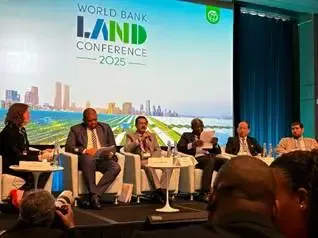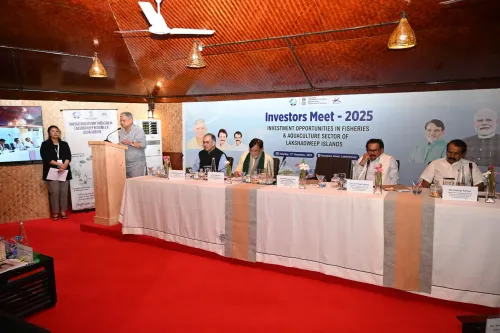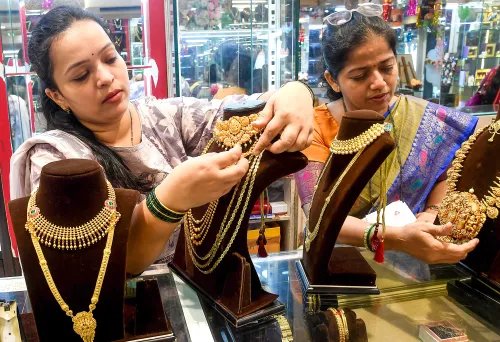How Are Other Countries Recognizing India's Rural Governance Models?

Synopsis
Key Takeaways
- SVAMITVA scheme enhances rural land ownership.
- Gram Manchitra promotes data-driven local development.
- India's models are scalable and applicable globally.
- Empowerment of women through land rights.
- Significant impact on economic transformation.
Washington, May 9 (NationPress) At the World Bank Land Conference 2025, India's SVAMITVA scheme and Gram Manchitra platform emerged as exemplary models for inclusive economic transformation, attracting interest from nations eager to adopt these Rural Governance Models.
India showcased its robust presence at the conference, presenting the SVAMITVA scheme, which has surveyed an impressive 68,000 sq. km of rural land, resulting in a monetization of assets worth Rs 1.16 trillion. During the four-day event from May 5 to 8 in Washington D.C., India took center stage as a Country Champion, led by Vivek Bharadwaj, Secretary of the Ministry of Panchayati Raj.
The Plenary Session focusing on ‘Good Practices and Challenges in Land Tenure and Governance Reform’ highlighted how secure land ownership facilitated by SVAMITVA is enhancing livelihoods, empowering women, and improving access to credit in rural India. The real-life success stories from farmers, women, and small entrepreneurs illustrated the tangible impact of property rights and formalized land records.
The Ministry of Panchayati Raj (MoPR) also conducted a high-level special session titled ‘Securing Land Rights for a Billion People’, attended by representatives from World Bank Divisions and various countries. This session emphasized the comprehensive implementation and the significant impact of the SVAMITVA Scheme, ranging from drone surveys and legal frameworks to property card issuance and institutional collaboration.
In a technical session on ‘Establishing the Land Foundation for Climate Action and Disaster Risk Management’ on May 8, Alok Prem Nagar, Joint Secretary of MoPR, presented Gram Manchitra, a geospatial planning platform that enables Gram Panchayats to create data-driven, localized development plans. The tool's effectiveness in promoting climate resilience, infrastructure planning, and scheme convergence received commendation for its relevance in the Global South.
During his presentation, Nagar underscored the significance of capacity building, financial incentives, and community engagement, positioning Gram Manchitra as a progressive solution for disaster preparedness and inclusive development.










